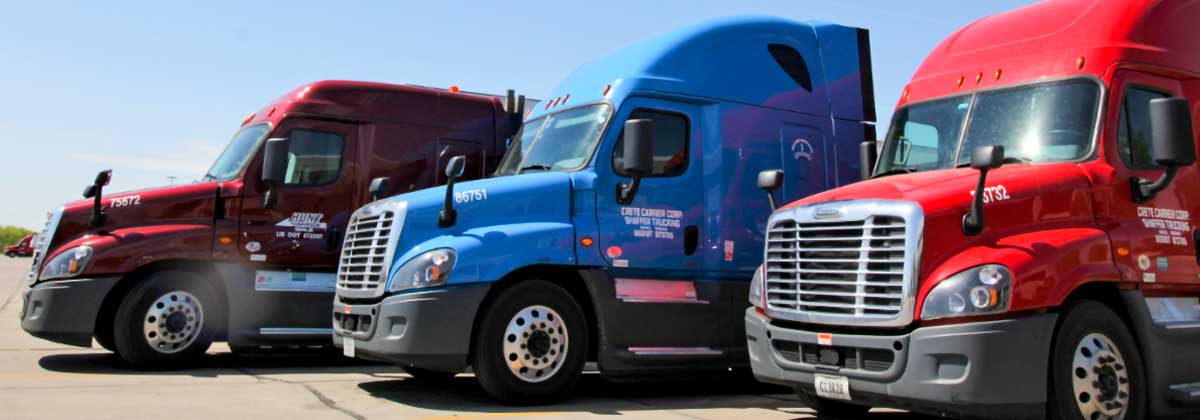Safety is a part of every truck driver’s daily mission. It starts with a good pre-trip inspection of the driver’s equipment. But it doesn’t stop there. A driver needs to pre-trip themselves daily as well. Let’s take a look at some of the issues we might need to address on a personal safety level before and during our driving day.
We all should know how to pre-trip our trucks daily, but how we pre-trip ourselves is equally important. Overlooking something simple before setting out on our daily drive can result in some very unsafe situations. Something as simple as not having your water bottle filled and stored safely can cause an unsafe situation. You can either make an unplanned stop to correct it or take an unsafe risk to rectify it while driving. Obviously, stopping is the correct answer, but we all know many will choose not to. And sometimes this has tragic results.
So here’s my checklist for the Driver’s Pre-trip. And though I will likely overlook a thing or two, I hope it will be good food for thought for drivers to consider.
1. How do I feel today?
Did I get the rest I need to be able to perform my day’s driving safely? Am I feeling well overall? If any of these questions are in the negative category I should inform my asset manager before starting out if I feel it may affect my ability to deliver on-time safely.
2. What is my plan for the day?
Have I looked over my route and considered what challenges I will face such as weather and city traffic? Have I looked over the route on a system such as Google maps to see if there are any accidents or road closures occurring on my route before I start so I can plan ahead? Do I have any alternate routes lined up and verified in case I need to make a detour? How much extra time might these detours affect my drive? When will be the optimum time and location to take my 30-minute break and what will be the best location to take it?
3. What parking challenges will I encounter today?
I will need to have safe parking during the mandated 30-minute break as well as when my day is over. So what are my primary and backup plans to accomplish these tasks safely and legally?
4. Do I have directions to my next customer written down?
Have I personally gone over the route to the customer and verified it with either a map or GPS? Are there any special hazards that I will need to look out for such as tight turns or narrow entrances? Are my directions handy and within easy reach?
5. Have I stored and secured any loose items in my truck so they don’t come flying down or rolling around when I hit rough roads?
6. Do I have my water bottle or drinks filled and stored within safe and easy reach as well as any other food items I may want before my next stop?
7. Is my cell phone and headset charged and ready to go? Is my charger plugged in up front, and not in the sleeper? Hey—it happens!!!
8. Did I remember to get fresh coffee? (If I was parked where it is available.)
9. Have I communicated with my asset manager or off-hours personnel what my ETA and PTA are expected to be and what hours I will have available when empty so they can get to work on a possible pre-planned load for me? (This one is a big key to success.)
10. Have I paper clipped the page in my Pocket Truck Stop Guide for the route I am travelling so I can reference it quickly if I need to stop? I highly recommend these little $5 handbooks. And look for new editions as they come out. New facilities open and some close all the time.)
11. Have you taken your daily medications if you are on any?
12. If using a GPS, do you have your route programmed into it and verified it with your atlas?
13. Give things one final look around and make sure that everything is as it should be, and make the final decision. Am I ready to roll?
These are just a few things I try to think of during my personal Pre-Trip Inspection. You may have some things to add or some that may not apply to you individually. But take the time and do a good pre-trip on yourself every day to reduce the chances of finding yourself in an easily avoided unsafe situation.
Mostly, these items are to increase your safety and reduce the stress that can occur during our daily drive. It only takes a moment of distraction over something trivial to ruin a day or a career.



